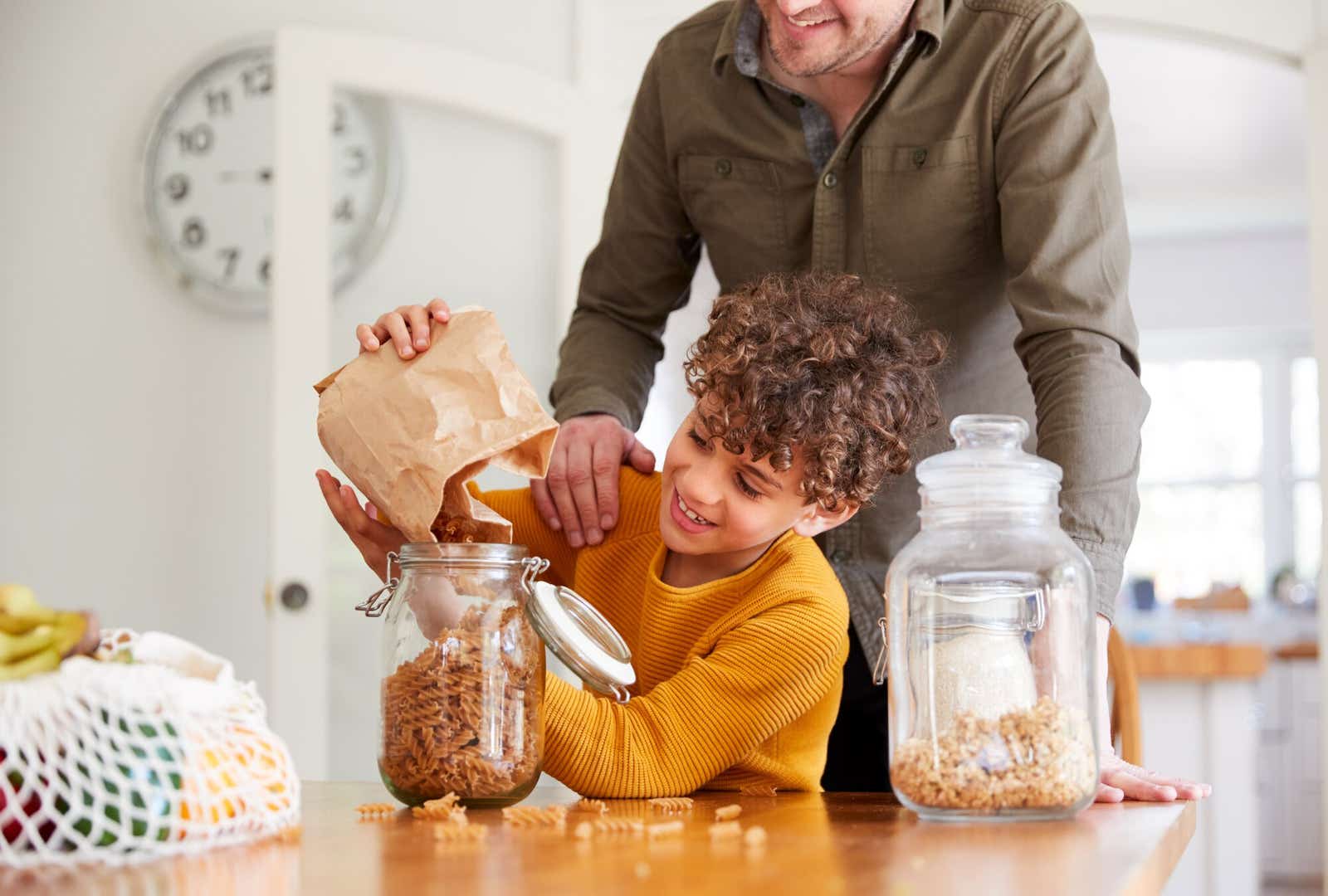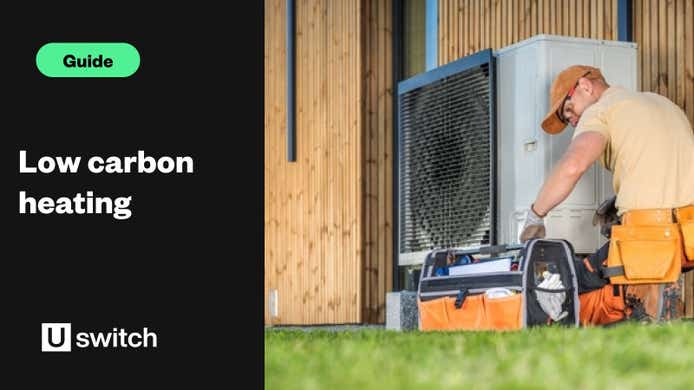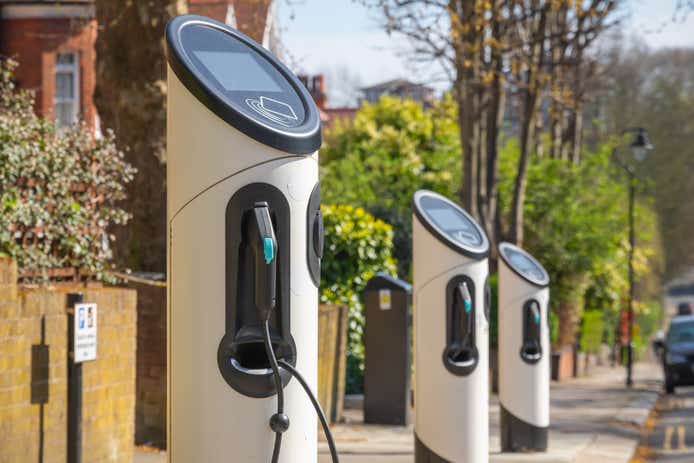What is food waste?
Put simply, food waste defines any food that’s fit for human consumption that’s been left uneaten, unused or has been discarded. It includes all parts of the food – including inedible elements such as bones, cores and peelings.
World bodies such as the United Nations Food and Agriculture Organization restrict the definition of food waste to cover food that has made it as far as the supermarket or wholesaler’s shelves. A separate term – “food loss” – refers to food that’s lost during the production, packaging, and transport process.
In other words, any food left on the restaurant plate or discarded from our shopping trolleys after purchase falls into the “food waste” category. And it’s counted as waste even if it’s subsequently diverted elsewhere, say into the compost bin, or used as biofuel.
According to WWF, approximately 2.5 billion tonnes of food produced for human consumption is lost each year – that’s more than one third of all food produced.
Why is food waste a problem?
WRAP estimates the amount of food wasted in the UK has a value of £19 billion and contributes over 36 million tonnes of greenhouse gas emissions. More than two-thirds of the waste generated – 6.4 million tonnes – could have been eaten, equating to over 15 billion meals. According to the UN, if food wastage were a country, it would be the third largest emitter in the world.
Aside from the environmental impact, most households don’t realise the cumulative effects of all that food wastage on their pocket – according to WRAP, the average family throws away £700 of food shopping each year.
One of the problems with food is having the time to manage it more efficiently to minimise wastage. WRAP discovered that during the lockdowns in 2020, self-reported levels of food waste dropped dramatically from 24.1% in November 2019 to 13.7% in April 2020. However, since then, with 44% of UK citizens feeling under increasing time pressures, food waste figures have crept back up to reach their highest levels since the pandemic began.

How to reduce food waste
There are plenty of food waste solutions out there.
One of the most effective ways to stop wasting food is – of course – to only buy what you need. Consider sitting down once a week with a proper meal planner, ensuring you only purchase the ingredients you need in the right quantities. Not only will you reduce waste, you’ll save money too.
If you frequently leave large leftovers, consider putting them into a plastic box and either placing them in the fridge overnight to eat the following day, or freezing them to bring out later when you’re too tired to cook. Failing that, start measuring your food so you only cook the correct amount each time.
Make sure you store food correctly too – ensure your fridge’s temperature is between zero and five degrees Celsius, and don’t automatically assume it’s the best place to store certain types of food: bread is best kept in a cool, dark place, while bananas, potatoes and onions should be kept away too. You can also freeze many food items – both before and after cooking. Check the labelling for details.
You can make some veg last longer by placing its stems in water, while bread rolls past their best can be made crispier by putting them in the oven for a few minutes or converting them into breadcrumbs to mix with herbs as a topping or stuffing.
Beyond reducing your food waste you can also be more aware of how energy-efficient your cooking is, like using a slow cooker more often and not over filling pans of boiling water.
Use UK food waste apps
Mobile UK food waste apps allow retailers – including cafes, restaurants and grocery stores – to reduce their food waste by advertising perfectly good food that’s otherwise destined for the compost or landfill. In return, consumers can pay a fraction of the price for food they might otherwise not be able to afford.
The most popular app is Too Good to Go, with 50 million users worldwide. Once installed on your phone, it’ll reveal eateries and shops close to you that offer ‘Magic Bags’ of food that you pay a fraction of the original price for. The catch? You don’t usually know what’s in the bags.
If you’d prefer to know exactly what you’re getting, try Karma on Android and iOS, a Swedish app with some limited UK coverage (particularly in London). Here, you can see exactly what you’re being offered, and get it for half price.
If you’re looking to give away your own food (or other household items), then try Olio, which is designed to cut waste of all kinds while encouraging people to be more neighbourly.
Other services and apps are aimed at connecting supermarkets and retailers to charities and individuals in search of free food – one such example is Neighbourly.
Make compost from kitchen waste
Why not put your kitchen waste to good use by returning it to the soil? Even if you don’t have a garden, you may be able to compost by adding a second food waste bin to your collection, so one is composting while the other is taking more food waste.
Materials you shouldn’t ordinarily compost include meat (including bones), dairy and citrus. However, if you use Bokashi Bran to ‘ferment’ your kitchen waste, you can not only include these items but also speed up the composting process too. Typically sprinkle layers of Bokashi Bran into your food bin as you fill it, then leave it to ferment for two weeks. After this period, add it to your compost as normal, where you should find it breaks down much quicker with less manual intervention, and it provides richer nutrients for your soil.
Wiggly Wigglers offers a complete bokashi composting kit, with special bins designed to collect any excess liquid. This can then be tapped off to offer a rich source of nutrients to your plants or simply to tip down your drains to help keep them clear.
Calculate your carbon footprint to see where else you could improve in the home.

How to dispose of food waste safely in the UK
Avoid putting kitchen waste into your regular bin – not only is this bad for the environment, but it creates nasty odours, and your bin becomes a target for animals such as foxes, who can smell the food inside, rip the bags apart and leave your driveway a mess.
You can either compost the kitchen waste yourself to provide nutrients for your own garden (see below) or check with your council to see if it provides food waste collections. You’ll typically be given food waste bins – a small kitchen caddy plus a larger storage bin. Look to line the caddy with newspaper or compostable bin liners to help keep it relatively clean and easy to empty into your main food wastage bin. Make sure you keep the lid of both firmly shut to keep out insects, vermin and other unwanted pests.
What can I put in my food waste bin?
Check with your local authority to see what can be placed in your food bin – go to your council website or enter your postcode into Recycle Now’s postcode tool. This will confirm if your local authority offers collections – click on the Food Waste entry for full details.
Typically, the following items can be placed into your food waste bin:
- Bread, cakes and pastries
- Dairy products - cheese and eggs
- Raw and cooked fish and meat (including bones)
- Raw and cooked fruit and vegetables (including peelings)
- Rice, pasta and beans
- Teabags and coffee grounds
- Uneaten food and plate scrapings
How to stop flies in your food waste bin
There are several things you can do to reduce or eliminate the number of flies and other insects in your food waste caddy. First, avoid leaving food uncovered in the kitchen as it will attract flies in the first place – that means making sure your food caddy lid is closed whenever it’s not being used.
You can also try minimising the amount of liquid that ends up in your food waste bin – squeeze empty tea bags to remove excess liquid, for example. Also try lining the bottom of the caddy to absorb liquids that seep to the bottom – you could lay down newspaper or a sheet of kitchen towel, or sprinkle bicarbonate of soda on the bottom, which has the added benefit of reducing insect-attracting odours.
Another trick is to treat the lid with tea-tree oil or citronella, or place sprigs of elder, lavender, mint, pennyroyal, rue or southern wood in the bin lid. Also store your caddies and food bins away from direct sunlight too, to prevent the food heating up inside, releasing odours that will attract unwanted pests.
Finally, be sure to regularly wash out and disinfect your bins.
Food waste FAQs
What happens to food waste?
Although many councils now collect food wastage, a significant amount still ends up in landfill.
Food waste that is collected by councils is primarily processed in two ways: in-vessel composting combines food and garden waste to produce soil conditioner after 1-3 months of processing, while anaerobic digestion introduces microorganisms to break down food waste, energy crops and animal manure. The methane generated is captured and converted into biogas for use as energy or transport fuels, while the remainder is then used to fertilise farmland and areas designated for land regeneration.
How can I stop flies in my food waste bin?
Keep your food caddy closed when not in use. Remove excess liquids from waste before adding it to the food. Place a liner – newspaper or kitchen towel – at the bottom of the caddy to mop up excess liquid.
How much food is wasted in the UK?
In 2018, the UK produced around 9.5 million tonnes of food wastage – a 15% reduction from 2007. 70% (6.6 million tonnes) of this comes from UK households. In this light of these food waste statistics, the UK government has reaffirmed its commitment to halving the amount of food waste generated in the UK by 2030.
What does the UK do with food waste?
Most local authorities now collect food waste separately from regular rubbish. Waste collected in this way is processed to provide either fuel in the form of biogas or a fertiliser to transfer nutrients back to the soil.
How can I recycle food waste at home?
If you have a garden, you can compost your own food waste by first storing it in a caddy, then transferring it to your heap. To speed up the composting process, plus allow you to include more types of food in your waste, investigate using bokashi bran.
Where does food waste go?
Food waste may end up in landfill, collected by local authorities to process into energy (biogas) or fertiliser, or used by householders to provide compost for their own gardens.

How to reduce your CO2 emissions
Use Uswitch's Net Zero tool to find out how you can make a difference in your everyday life to help the UK reach net zero emissions by 2050.




